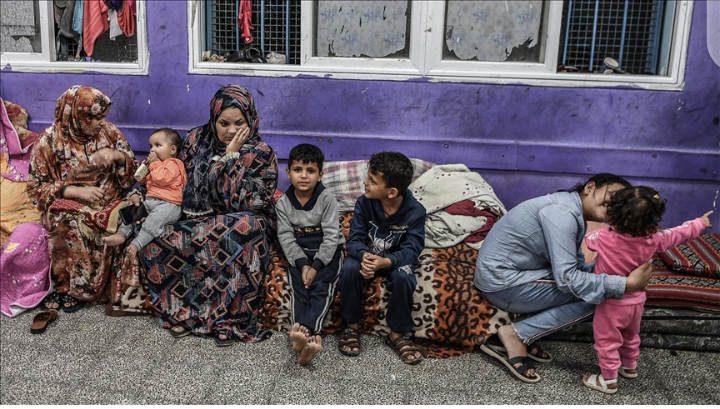Trump plans to block hearings in January 6 case before 2024 election | Donald Trump
Donald Trump is expected to launch a new legal battle to suppress any damaging evidence from his 2020 election-subversion case from becoming public before the 2024 election, preparing to shut down the potency of any “mini-trials” where high-profile officials could testify against him.
The plans come after the US supreme court last week in its ruling that broadly conferred immunity on former presidents opened the door for the US district judge Tanya Chutkan to hold evidentiary hearings – potentially with witnesses – to determine what acts in the indictment can survive.
In the coming months, Trump’s lawyers are expected to argue that the judge can decide whether the conduct is immune based on legal arguments alone, negating the need for witnesses or multiple evidentiary hearings, the people said.
If prosecutors with the special counsel Jack Smith press for witnesses such as former vice-president Mike Pence or White House officials to testify, Trump’s lawyers are expected to launch a flurry of executive privilege and other measures to block their appearances, the people said.
The plans, which have not been previously reported, are aimed at having the triple effect of burying damaging testimony, making it harder for prosecutors to overcome the presumptive immunity for official acts, and injecting new delay into the case through protracted legal fights.
Trump has already been enormously successful in delaying his criminal cases, including by succeeding in having the supreme court from taking the immunity appeal in the 2020 election subversion case in Washington, which was frozen while the court considered the matter.
The delay strategy thus far has been aimed at pushing the cases until after the November election, in the hope that Trump would be re-elected and then appoint as attorney general a loyalist who would drop the charges.
But now, even if Trump loses, his lawyers have coalesced on a legal strategy that could take months to resolve depending on how prosecutors choose to approach evidentiary hearings, adding to additional months of anticipated appeals over what Chutkan determines are official acts.
A Trump spokesperson declined to comment, saying they would not preview confidential legal strategy.
Trump’s lawyers are not expected to make any moves until the start of August, the people said, when the case is finally returned to the jurisdiction of Chutkan after the conclusion of the supreme court’s 25-day waiting period and a further week for the judgement to formally be sent down.
Once Chutkan regains control of the case, lawyers for Trump and for the special counsel have suggested privately that they think she will quickly rule on a number of motions that were briefed before the case was frozen when Trump filed his immunity appeal with the supreme court.
That could include Trump’s pending motion to compel more discovery materials from prosecutors. If Chutkan grants the motion, Trump’s lawyers would insist on time to review the new materials before they started sorting through what acts in the indictment were immune, the people said.
In the supreme court’s ruling on immunity, the justices laid out three categories for protection: core presidential functions that carry absolute immunity, official acts of the presidency that carry presumptive immunity, and unofficial acts that carry no immunity.
Trump’s lawyers are expected to argue the maximalist position that they considered all of the charged conduct was Trump acting in his official capacity as president and therefore presumptively immune – and incumbent on prosecutors to prove otherwise, the people said.
And Trump’s lawyers are expected to suggest that even though the supreme court contemplated evidentiary hearings to sort through the conduct, they are not necessary, and any disputes can be resolved purely on legal arguments, the people said.
In doing so, Trump will try to foreclose witness testimony that could be politically damaging because it would cause evidence about his efforts to subvert the 2020 election that has polled poorly to be suppressed, and legally damaging because it could cause Chutkan to rule against Trump.
Trump’s lawyers have privately suggested they expect at least some evidentiary hearings to take place, but they are also intent on challenging testimony from people like former vice president Mike Pence and other high-profile White House officials.
For instance, if prosecutors try to call Pence or his chief of staff Marc Short to testify about meetings where Trump discussed stopping the January 6 certification, Trump would try to block that testimony by asserting executive privilege, and having Pence assert the speech or debate clause protection.
Trump’s lawyers would argue to Chutkan that any privilege rulings during the investigation that forced them to testify to the grand jury were not binding and the factual record needed to be decided afresh.
Meanwhile, witnesses such as former Trump lawyer John Eastman or former Trump campaign official Mike Roman would almost certainly be precluded from testifying because they have valid fifth amendment concerns of self-incrimination, as they have been separately charged with conspiring to overturn the 2020 election results in Fulton county, Georgia.

